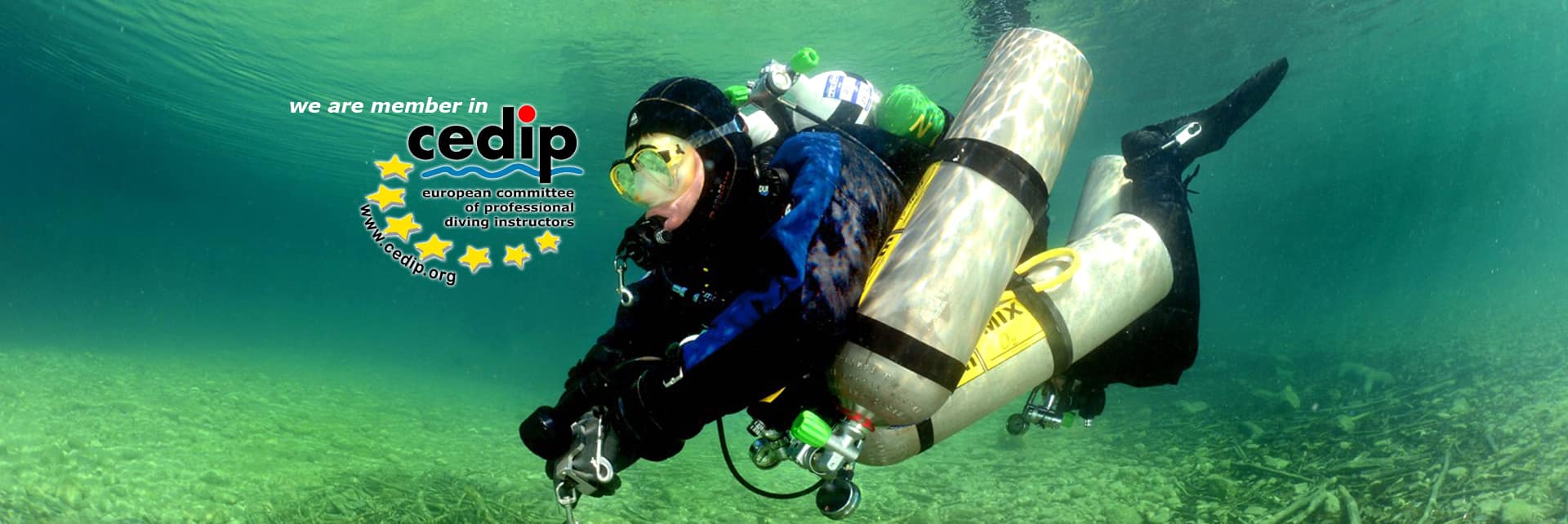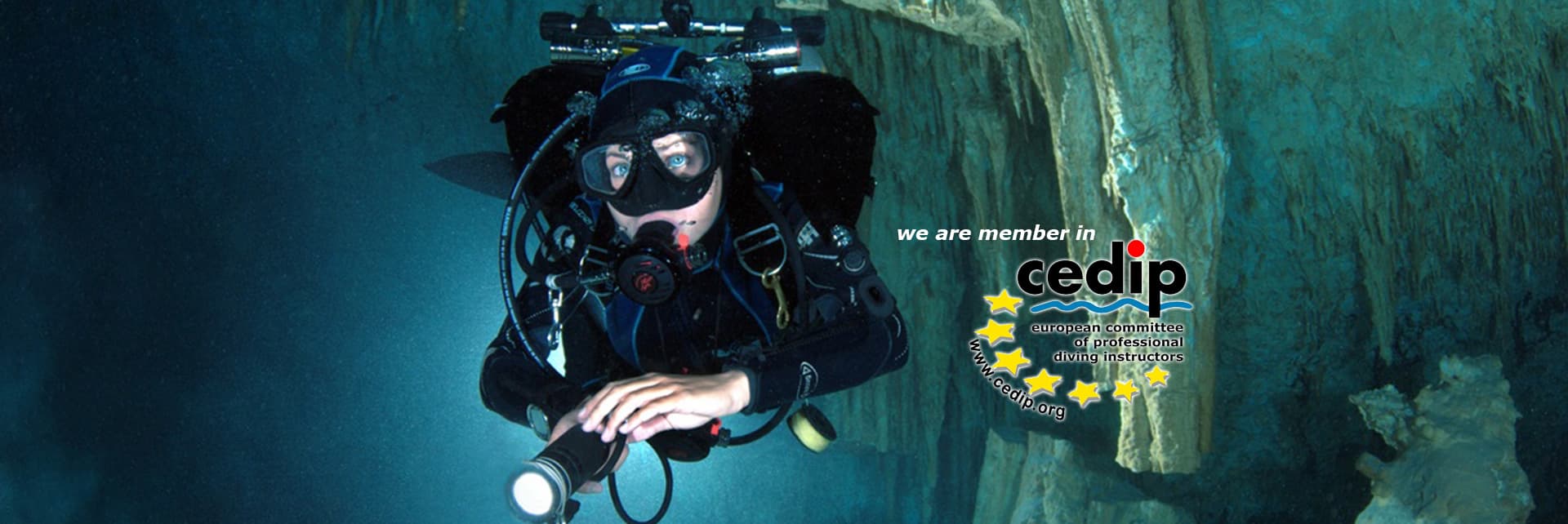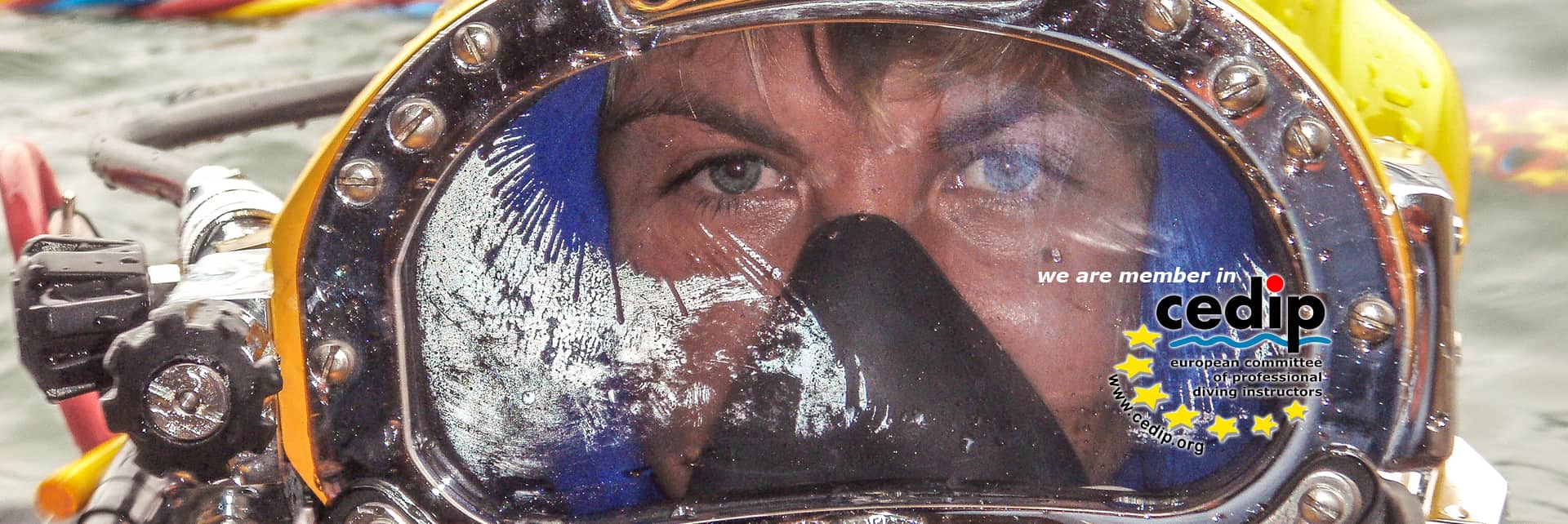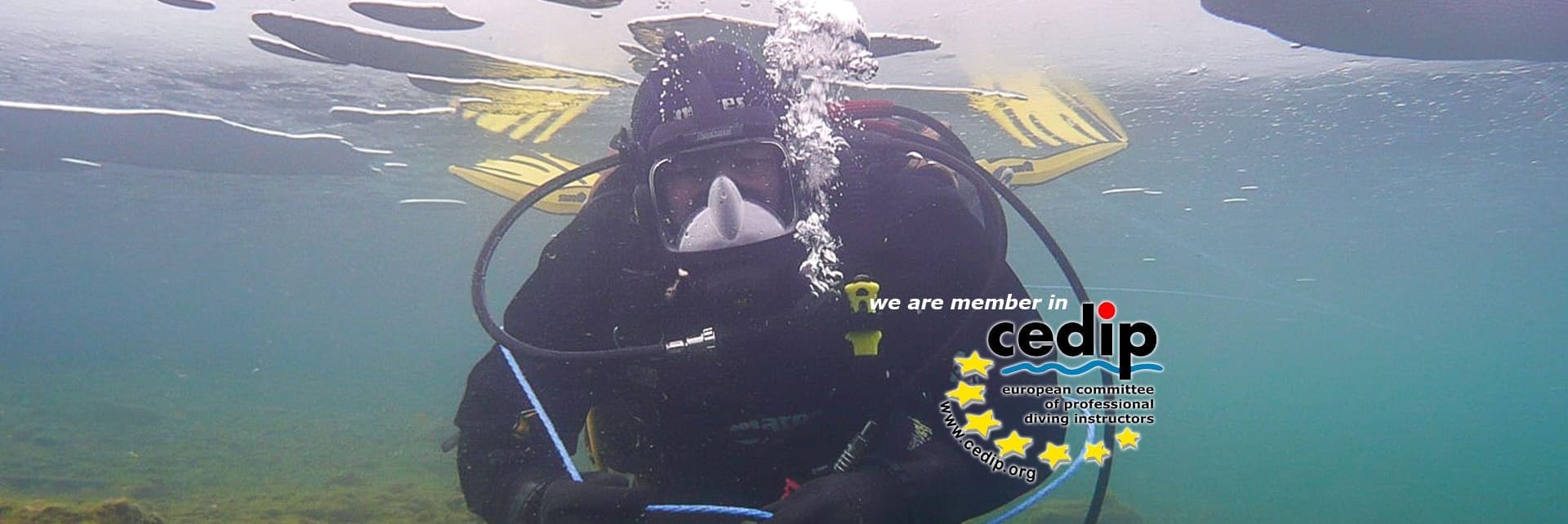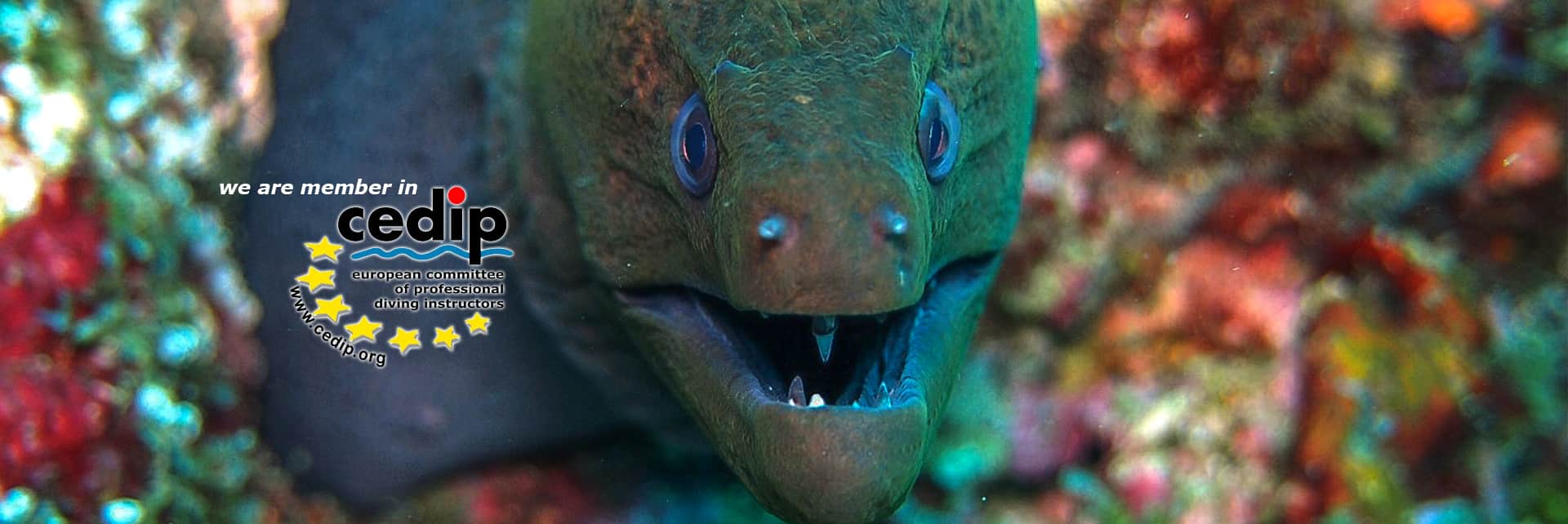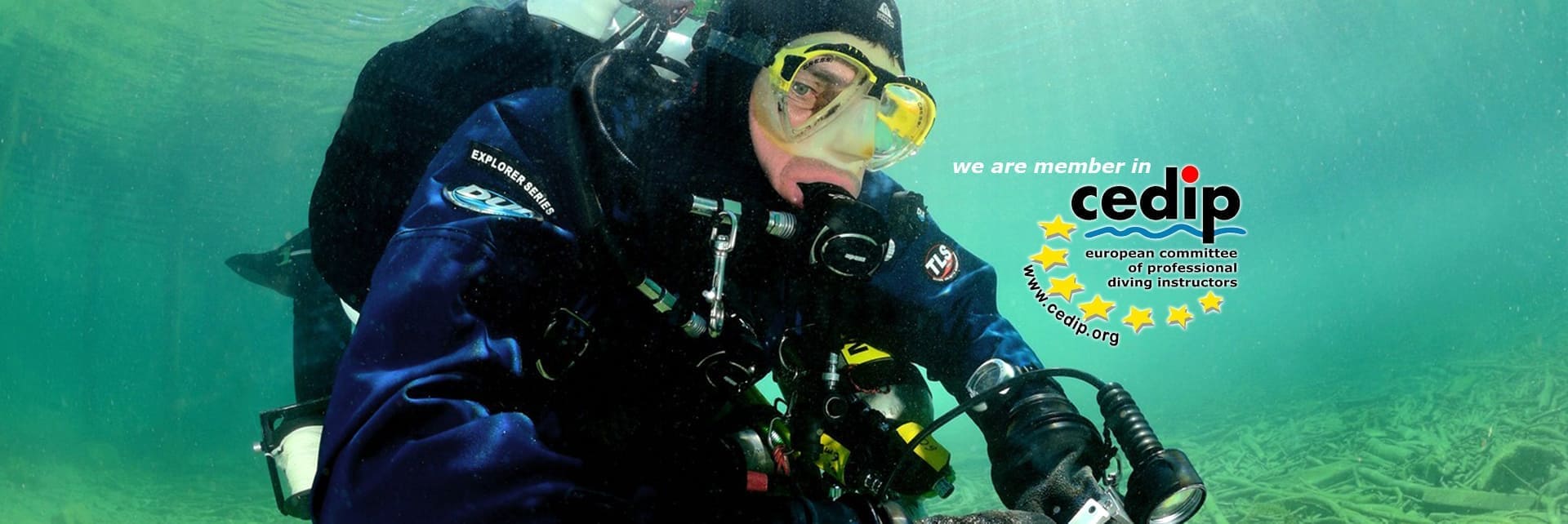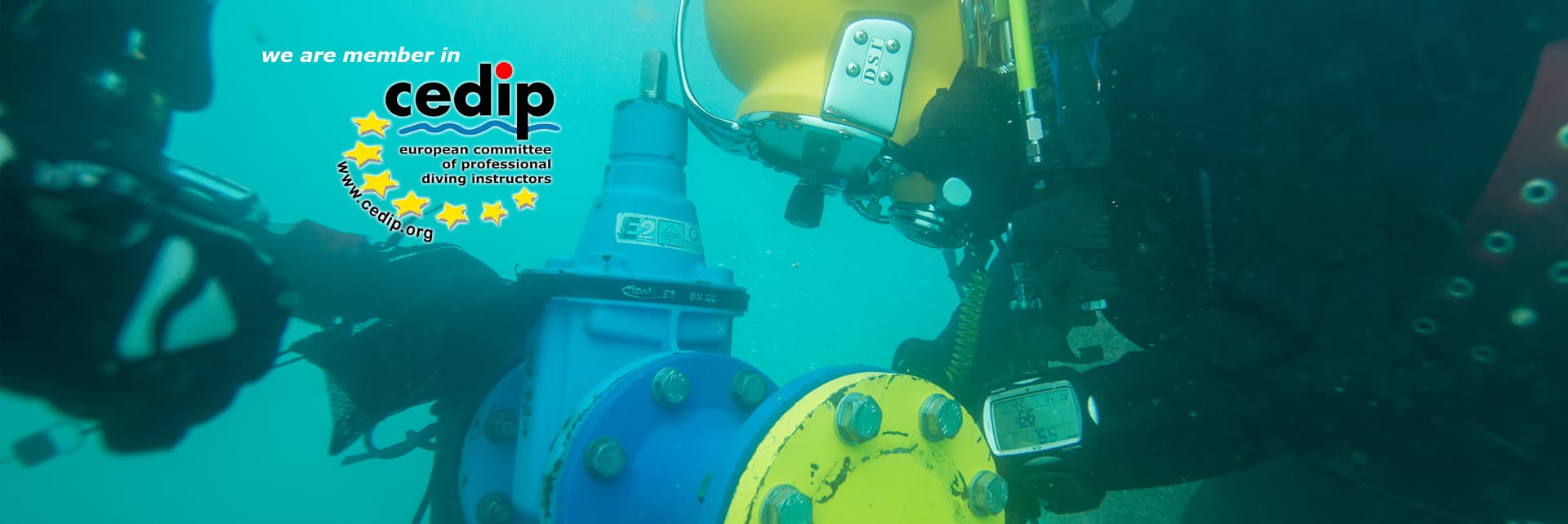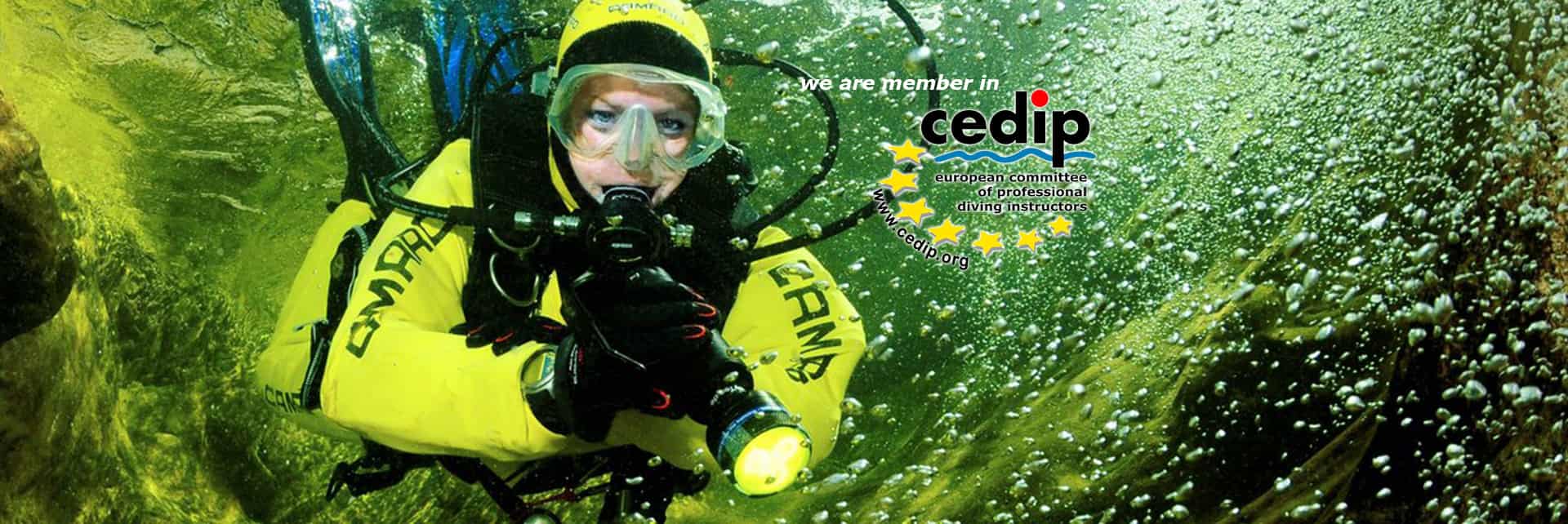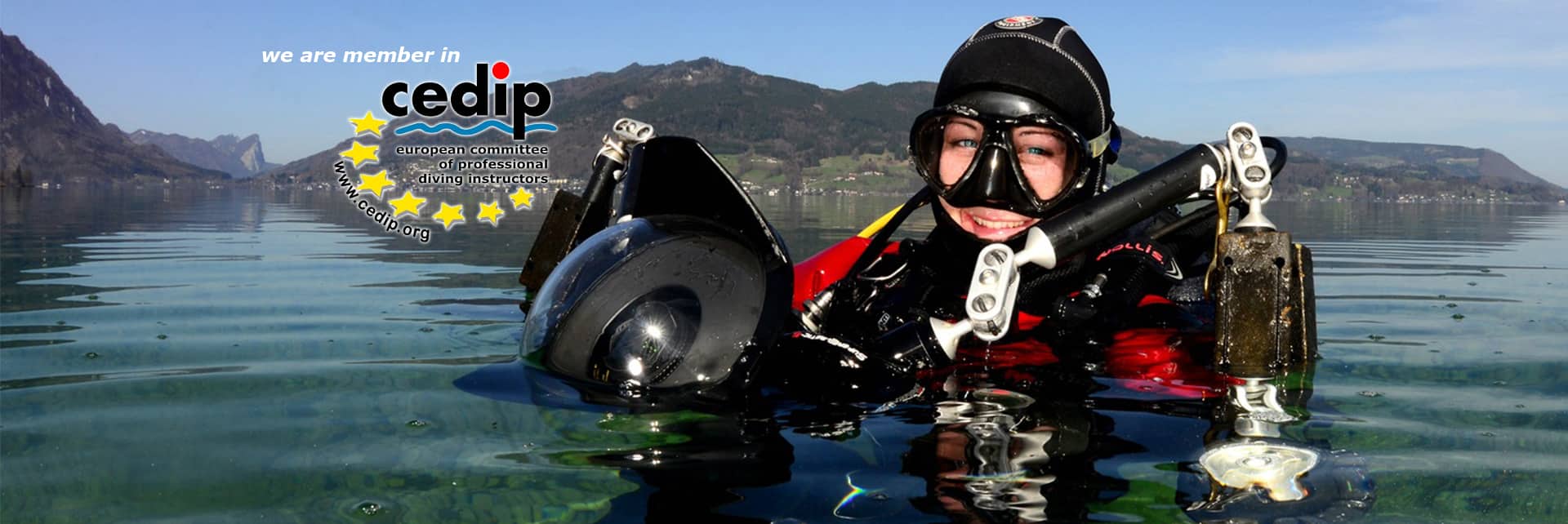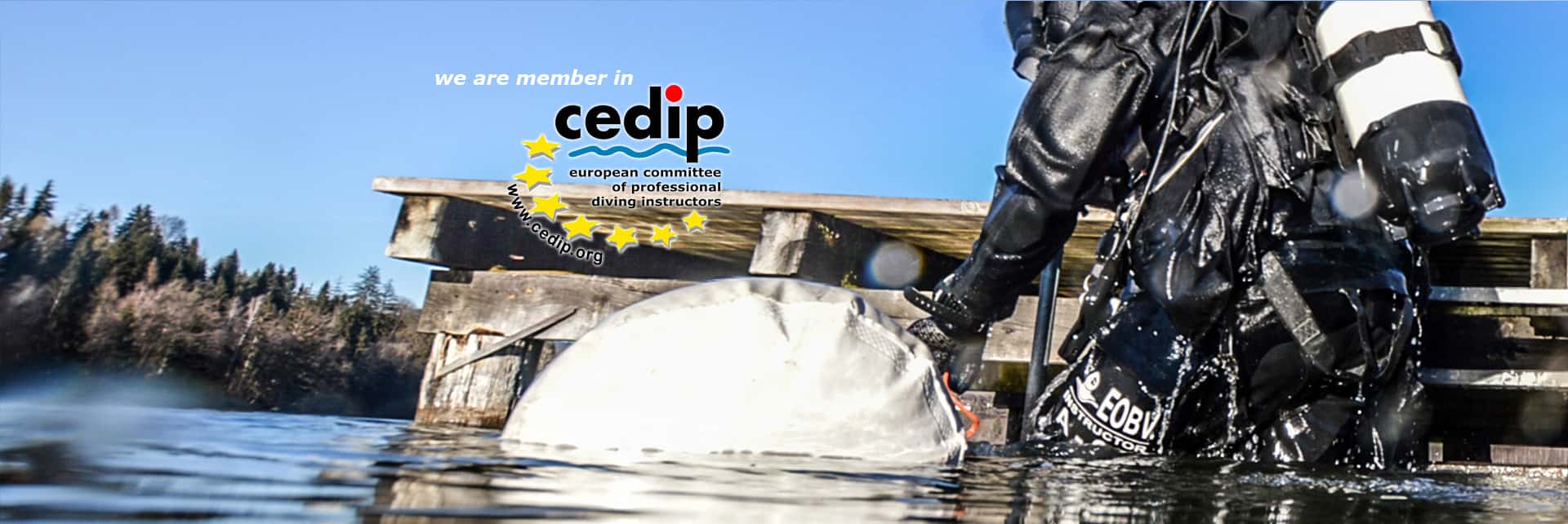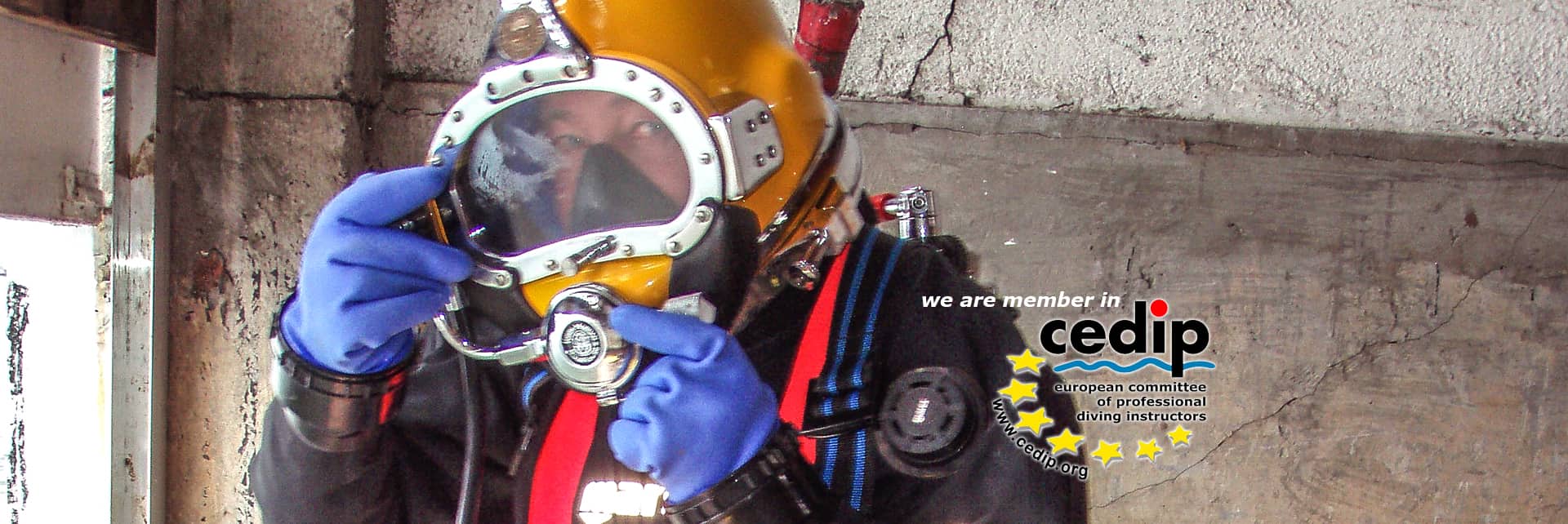The heat balance during diving
Heat is released from the body both directly to the water surrounding it and through breathing, since the cold and dry compressed air is warmed and humidified when inhaled. From a physical point of view, the thermal conductivity of water is about 25 times higher than that of air. Although the human body can significantly reduce heat loss through counter-regulations, it cools down about 4 times faster in water than in air of the same temperature.
A diving suit has an insulating effect and further reduces heat loss, depending on the design. A thin “shorty” made of neoprene that only covers the torso and parts of the extremities will prevent you from getting cold less than a model that covers the whole body incl. Protects head, hands and feet. The right choice depends on the respective diving project and the type of water. Wearing a thinner diving suit also makes sense in tropical waters – but here mainly to protect the body from unwanted contact with corals and marine life.
If the body cools down during the dive, the blood circulation in the superficial tissues is reduced. As a result, the previously dissolved nitrogen is transported away from these areas more slowly and breathed out with a delay. Longer decompression may therefore be necessary in cold waters. For this reason, too, a diving suit with good insulating properties is an important contribution to diving safety.
